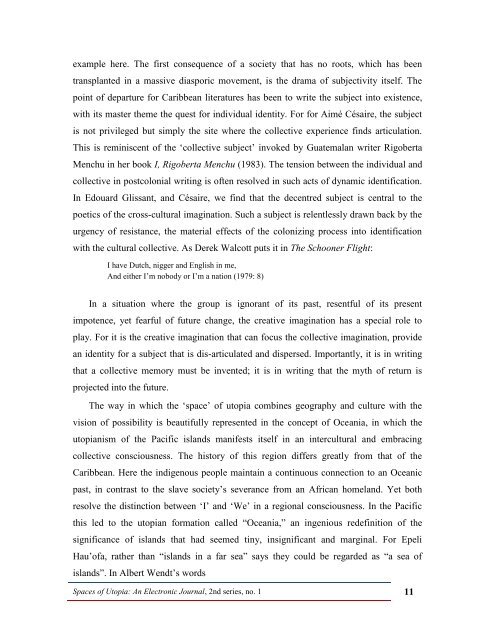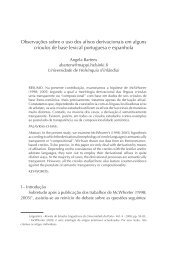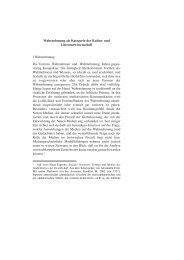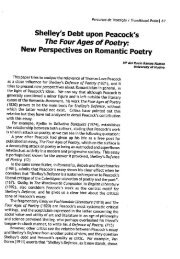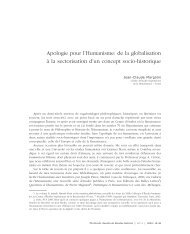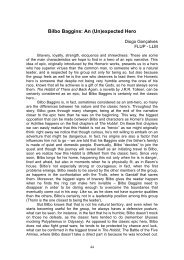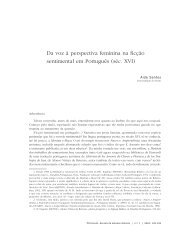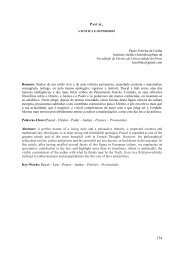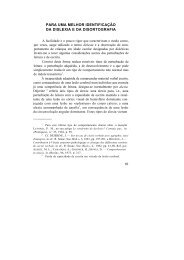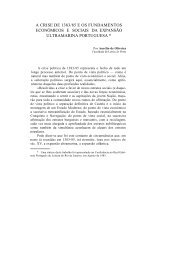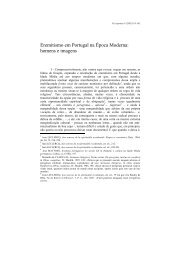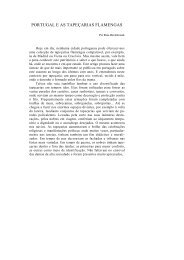File (.pdf)
File (.pdf)
File (.pdf)
You also want an ePaper? Increase the reach of your titles
YUMPU automatically turns print PDFs into web optimized ePapers that Google loves.
example here. The first consequence of a society that has no roots, which has been<br />
transplanted in a massive diasporic movement, is the drama of subjectivity itself. The<br />
point of departure for Caribbean literatures has been to write the subject into existence,<br />
with its master theme the quest for individual identity. For for Aimé Césaire, the subject<br />
is not privileged but simply the site where the collective experience finds articulation.<br />
This is reminiscent of the ‘collective subject’ invoked by Guatemalan writer Rigoberta<br />
Menchu in her book I, Rigoberta Menchu (1983). The tension between the individual and<br />
collective in postcolonial writing is often resolved in such acts of dynamic identification.<br />
In Edouard Glissant, and Césaire, we find that the decentred subject is central to the<br />
poetics of the cross-cultural imagination. Such a subject is relentlessly drawn back by the<br />
urgency of resistance, the material effects of the colonizing process into identification<br />
with the cultural collective. As Derek Walcott puts it in The Schooner Flight:<br />
I have Dutch, nigger and English in me,<br />
And either I’m nobody or I’m a nation (1979: 8)<br />
In a situation where the group is ignorant of its past, resentful of its present<br />
impotence, yet fearful of future change, the creative imagination has a special role to<br />
play. For it is the creative imagination that can focus the collective imagination, provide<br />
an identity for a subject that is dis-articulated and dispersed. Importantly, it is in writing<br />
that a collective memory must be invented; it is in writing that the myth of return is<br />
projected into the future.<br />
The way in which the ‘space’ of utopia combines geography and culture with the<br />
vision of possibility is beautifully represented in the concept of Oceania, in which the<br />
utopianism of the Pacific islands manifests itself in an intercultural and embracing<br />
collective consciousness. The history of this region differs greatly from that of the<br />
Caribbean. Here the indigenous people maintain a continuous connection to an Oceanic<br />
past, in contrast to the slave society’s severance from an African homeland. Yet both<br />
resolve the distinction between ‘I’ and ‘We’ in a regional consciousness. In the Pacific<br />
this led to the utopian formation called “Oceania,” an ingenious redefinition of the<br />
significance of islands that had seemed tiny, insignificant and marginal. For Epeli<br />
Hau’ofa, rather than “islands in a far sea” says they could be regarded as “a sea of<br />
islands”. In Albert Wendt’s words<br />
Spaces of Utopia: An Electronic Journal, 2nd series, no. 1 11


